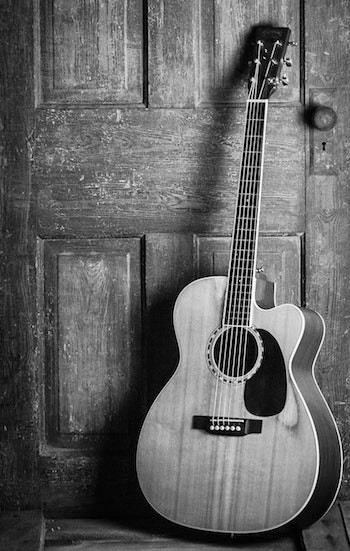get started. get better.

This is obviously one of the first questions for a beginner. Which guitar should I buy? What are the most important things to look for? Should I get a classical, acoustic or electric?
While all of these questions have answers (which I will attempt shortly), there is an unusual answer I want to try first. “It doesn’t really matter.” Now, how could someone who loves guitar and tries to learn all about guitars say something like that?
Well, if you hear interviews of many famous guitarists, you will find that they didn’t get their start with a shiny new guitar. Many of them were introduced to a dusty old guitar that maybe a friend let them borrow or was in their attic.
The spark that ignites the passion of guitar doesn’t lie within the guitar itself. It has much more to do with the thrill of getting certain sounds to come from the instrument. The most important thing is that you have one. You can always upgrade later.
General Direction
Now, on to the answers: all sorts of companies (as you can imagine sell guitars). I still find it funny that “big box” stores which also carry groceries and clothing also carry guitars. You’ll probably want to steer clear of that. I generally advise people to start with acoustic rather than electric. If you can play well on acoustic, you’ll play even better on an electric. Not so, the other way around. Classical guitars are good for younger players because the nylon strings are a little easier on the fingers. Younger students may want to look into either a half-size guitar or a three quarter size guitar.
What to Look For
With beginner guitars, 3 biggest issues are 1. tuning 2. action 3. construction. When I mention construction, I’m mainly referring to how the guitar is put together. Some “guitars” are really toys that will break easily. The action of a guitar is the distance from the strings to the fret board. Action of half and inch or more is a bad sign. You can adjust this on some guitars, but on others, you’re stuck with it. Very expensive guitars have great action. Finally, the tuning of the guitar is the main issue with cheap guitars. For whatever reason, the B string on cheap guitars is the first to go. As you turn the tuners and notice a distinct tone change, rather than a gradual one---this is a bad sign. Have someone tune it and play it to see if different chords all sound good. If some chords sound good, and others do not---run away!
Specific Recommendations
I recommend with caution. It’s not like there is that one golden nugget that is cheap and perfect. Firstly you can always check out the classifieds or craigslist to see what kind of used stuff is out there. Guitars have a pretty high turnover.
If you are buying new, and cost isn’t much of an issue, check out Fender’s beginner acoustic guitar pack (found at any music store). It will load you up with all the accessories, and the guitar actually has a solid top---which means the sound and construction is better.
On the very cheap—I just want to get started end of things, check out the rogue guitar at musiciansfriend.com. It doesn’t include a case or any accessories, but it is inexpensive and will let you try out guitar without breaking the bank.
My First Guitar
My first guitar was an old classical that my dad had. I spent hours a day with it learning and playing. I soon upgraded to a beginner Washburn acoustic, then a higher-end Takamine, and now I have my acoustic guitar for life: a Taylor 810ce limited. I’ve greatly appreciated every step up because I had spent so much time with the previous guitar. If you get the best guitar money can buy when you start off, you’ll never appreciate what you have. The most important thing now is that you just play!
Stephen